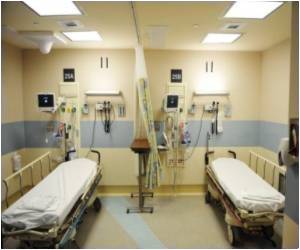
According to the national study, "The Silent Treatment: Why Safety Tools and Checklists Aren''t Enough to Save Lives," 85 percent of health care workers reported a safety tool warned them of a problem that otherwise might have been missed and could have harmed a patient. And yet, more than half (58 percent) of the participants said while they got the warning, they failed to effectively speak up and solve the problem.
These results indicate that while safety tools are an essential part of the formula for preventing avoidable medical errors caused by poor communication, cultures of silence in U.S. hospitals undermine their effectiveness.
"The Silent Treatment" research focuses on an especially dangerous kind of communication breakdown: known risks that are left undiscussed.
More than four of five study participants expressed particular concerns about three "undiscussable" issues: dangerous shortcuts, incompetence and disrespect. Many have witnessed these "undiscussables" lead to near misses or cause actual harm to patients.
Two of the nation''s largest specialty nursing associations - American Association of Critical-Care Nurses (AACN) and Association of periOperative Registered Nurses (AORN) - partnered with VitalSmarts, an innovator in evidence-based corporate training and organizational performance, on "The Silent Treatment" study to identify communication barriers that contribute to avoidable medical errors. Additionally, all three organizations focused attention on identifying and providing solutions to improve patient outcomes.
Advertisement
Among the study''s key findings:
- More than four of five nurses have concerns about dangerous shortcuts, incompetence and disrespect demonstrated by their colleagues.
- More than half say shortcuts led to near misses or harm, and only 17 percent of those nurses shared their concerns with colleagues.
- More than a third say incompetence led to near misses or harm, and only 11 percent spoke to the colleague considered incompetent.
- More than half say disrespect prevented them from getting others to listen to them or respect their professional opinion, and only 16 percent confronted their disrespectful colleague.
Advertisement
"Safety tools such as protocols and checklists guard against honest mistakes," Groah says. "However, this study tells us there is more work needed in the OR to support the surgical team''s ability to establish a culture of safety where all members can openly discuss errors, process improvements or system issues without fear of reprisal."
AACN President Kristine Peterson, RN, MS, CCRN, CCNS, cardiac clinical nurse specialist, Aspirus Wausau Hospital, Wis., notes the tremendous progress made by the health care community.
"Compared with what we learned in 2005, nurses now speak up at much better rates and are now nearly three times more likely to have spoken directly to the person and shared their full concerns," Peterson says. "This increased focus on creating cultures of safety needs to continue until every health professional feels empowered to speak up to reduce errors and improve quality of care."
Source-Newswise








